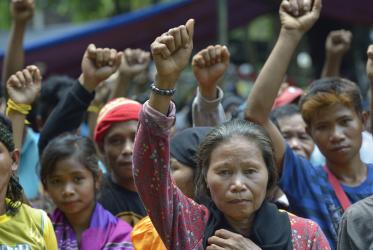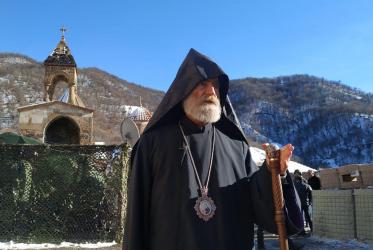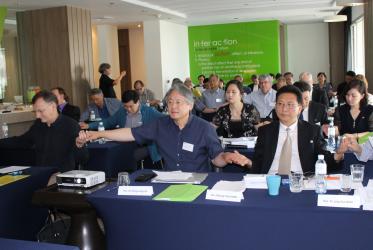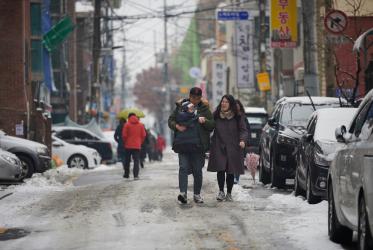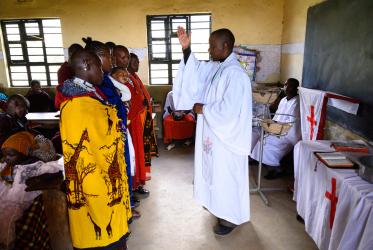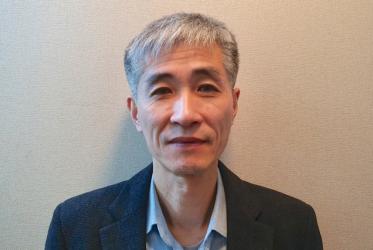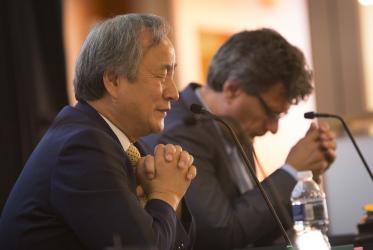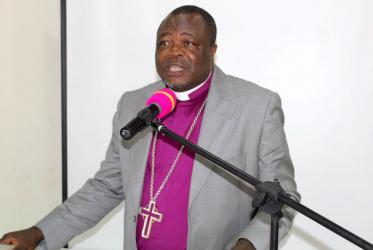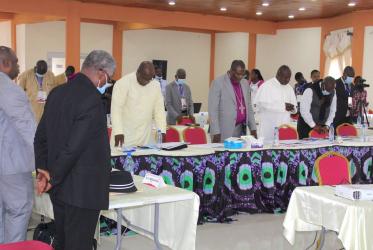Displaying 101 - 120 of 719
21 April 2021
70년 한국전쟁 종식을 위한 세계기독교인 기도캠페인
31 March 2021
WCC offers prayer during Japanese peace conference
11 March 2021
Peace and unity on the Korean Peninsula matters globally
25 February 2021
WCC sends letters of concern over violence and conflict in Ethiopia
04 February 2021
"Light of Peace" book now available in Korean
06 January 2021
Christians in Africa face increasing violent attacks, repression
23 December 2020
Rev. Shin Seung-min: “We want to create hope, not despair”
22 December 2020
Bishop Hee-Soo Jung: “Prayer is a radical action”
11 December 2020
Cameroon conference on peace empowers religious leaders
30 November 2020
